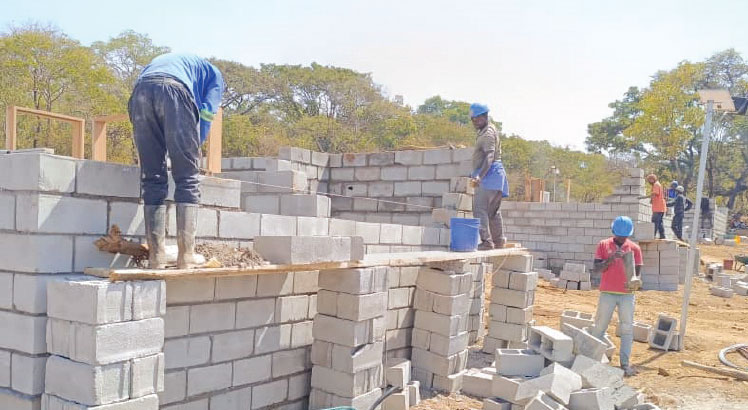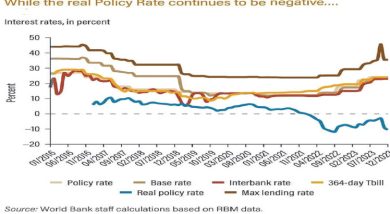Cyclone stirs mindset change
With the rainy season just a month away, the unyielding spirit of people in flood-prone zones has weakened since Cyclone Freddy struck Malawi’s Southern Region in March this year.
The rainstorm triggered flooding and landslides that claimed 676 lives from more than 2.2 million people affected. It also displaced 660 000 and left 537 missing.
Jenipher Kalumba of Traditional Authority Mkanda in Mulanje recalls the unsettling events of March 13 when she and her family fled their flooded house around midnight.
“We fled to Mbenje Camp for safety. We watched from a distance as our house crumbled in floods that washed away everything we had worked for,” she states.
Kalumba is the chairperson of a committee coordinating the relocation and resettlement of affected households to safer grounds.

“We have also changed where and how we build our houses,” she says.
The Department of Disaster Management Affairs (Dodma) is supporting affected households with 15 bags of cement to build resilient homes.
The cyclone survivors are also modifying their construction techniques to reduce the loss and damage caused by disasters fuelled by climate change.
The locals have also installed a flood detection device on the Thuchira River.
When the water reaches the green level, onlookers know it is safe. Yellow signals caution and red is a sign for people to evacuate.
Mulanje Social Protection Committee chairperson Samson Nakhonyo says: “We also lobbied chiefs in higher grounds to share land with cyclone survivors willing to relocate from the low-lying areas.
“Some are exchanging land for safe settlements with the lowlands good for farming.”
The committee has registered 155 households interested to relocate from disaster-prone zones in Malambwe, Mbona, Njobvu, Chimombo and Gunda in T/A Jenala.
The villagers now pay attention to early warnings, especially weather updates.
Through their village heads, they also pool grain in aid of those affected by disasters.
Phalombe district commissioner Douglas Moffatt says community participation is crucial in disaster risk management.
“The district council is still identifying land for households willing to relocate to safe places from the worst-hit zones in T/A Nkhulambe, Phweremwe, Nazombe, Kaduya, Chiwalo, Jenala and Mkhumba,” he says.
However, Moffatt says constructing more evacuation centres would ease the suffering when disasters strike.
In Nsanje, district information officer Robert Nayeja says surveys are underway to place gauges for water levels.
Dodma is constructing evacuation centres in disaster zones under Senior Chief Mlolo where people from at least four group village heads have relocated.
“We are now relocating people still in camps. The good thing is that communities have now accepted to move to uplands, we are not facing any resistance,” says Nayeja.
Chikwawa district information officer Leah Mambulasa reports that Matsukambiya villagers have finally relocated to Jombo.
The district council is also finalising land identification for the flood survivors in the East Bank region, where Pakamwa, Chikuse, Champhanda and Mazongoza villagers are earmarked for relocation.
Dodma spokesperson Chipiliro Khamula underscores the need for disaster preparedness and early warning systems to reduce the loss and damage.
He says: “When the Department of Climate Change and Meteorological Services warned of the looming cyclone, most people concentrated on preparing for the impacts of floods, only to be caught unawares by devastating mudslides.”
The cyclone ripped mountainsides as the torrents battered the Southern Region for six days, dumping an equivalent of the rains the entire received year.
“Freddy was beyond a disaster,” says Khamula. “The preparedness efforts were on point, but the magnitude of the disaster was beyond imagination.”
Construction of evacuation centres continue under the Post Cyclone Idai Emergency Recovery Project, but both financial and technical support are needed to strengthen communities and national resilience to disasters.
For the affected communities where more than 600 000 households were displaced, Cyclone Freddy was a harsh reminder that even the most meticulous preparations can be dwarfed by the sheer magnitude of a disaster that has become more frequent and devastating with climate change.
However, strengthening community resilience and collective action is crucial to reduce their impact.






One Comment